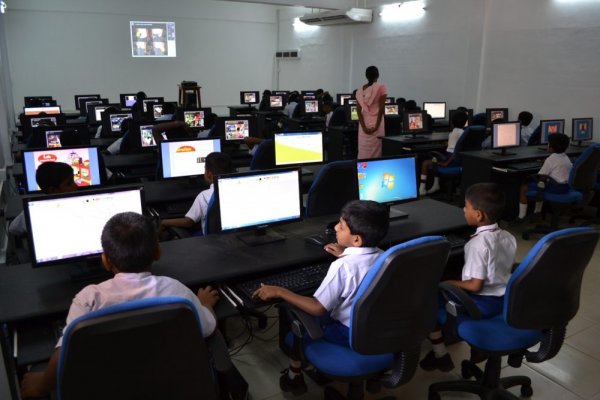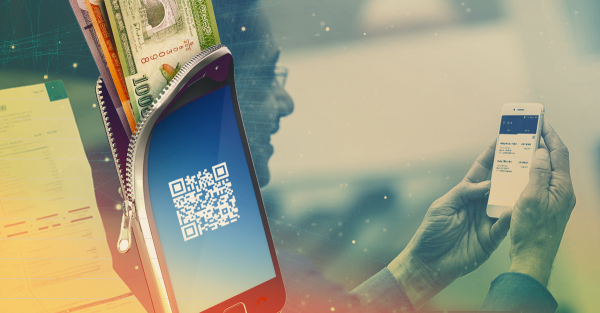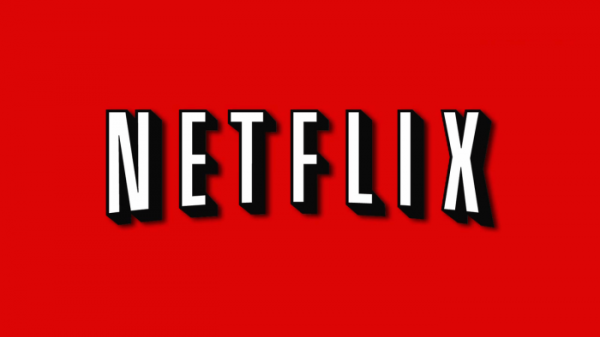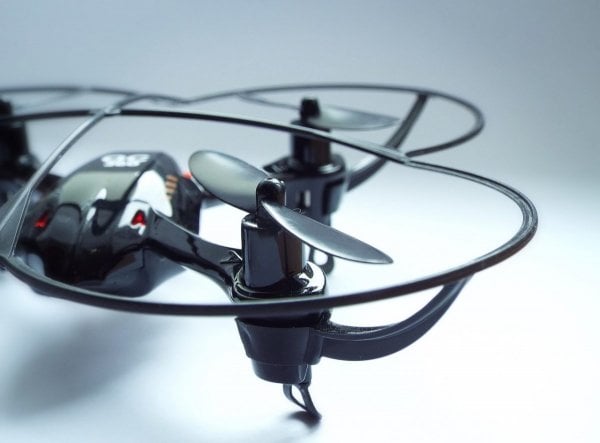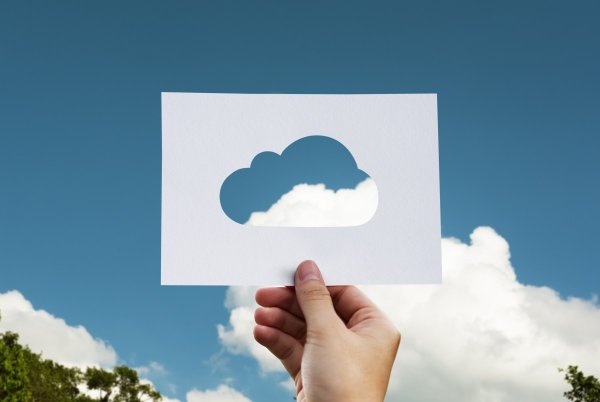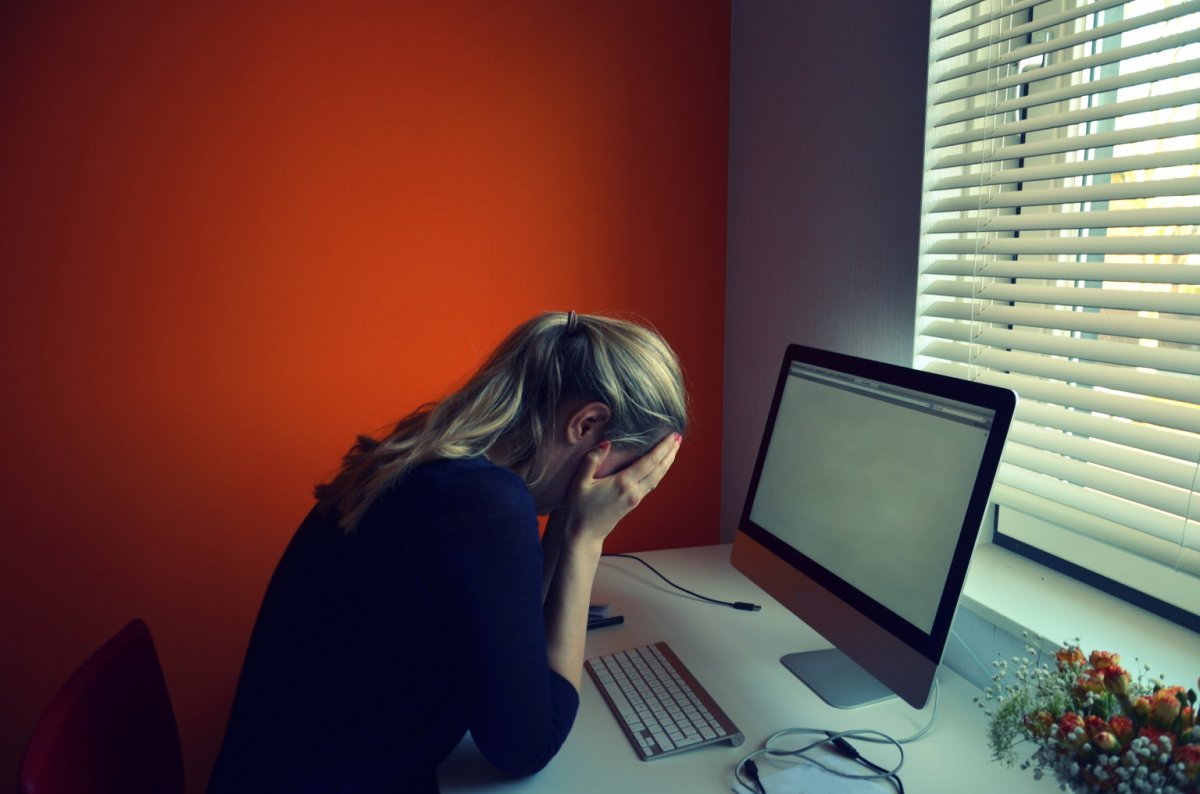
If there’s one thing that Facebook has us accustomed to, it’s being comfortable sharing things online, whether it be cat videos on the web, or pictures and personal details of ourselves. This is usually not a problem, as the people you share this stuff with are usually just your friends and family. Facebook generally does a better job at keeping out unsavoury elements by forcing (as much as possible) people to reveal their identities when they sign up. But this doesn’t always work, and with Facebook so rich with personal information, profiles are an easy target for people who want to steal your content or get a hold of your personal information.
In Sri Lanka, Facebook is also full of meme pages and communities run anonymously and famous for stealing profile pictures, posts, and then using them to attack and slander people. Then there are pages and communities that have racist, abusive, and outright nasty content.
With a lot of your personal information available on your Facebook profile, it’s important to know what you sign up for, when you get on the social network, and what you can do about someone stealing your stuff or being offensive online.
What You Own
First of all, you own all the content and information you post on Facebook, which is nice to know. So everyone can stop putting up those statuses where they publicly claim ownership of their content, because Facebook really doesn’t have the time to read all your statuses. They are not your weird stalker ex.

Image from qz.com
However, for any content that is covered by intellectual property rights (photos, videos, etc.), you are giving Facebook a “non-exclusive, transferable, sub-licensable, royalty-free, worldwide license to use any IP content that you post on or in connection with Facebook.” This is basically so they can display the content you post across timelines without restriction. The licence is also wide enough to prevent most sorts of legal action with regards to intellectual property. You give them rights to do whatever they want. The licence ends when you remove your content from the site or your account, unless, that is, it has been shared with others and they haven’t deleted it.
You can control most of your information through privacy settings, but if you post something as public, then you allow everyone, including people off Facebook, to use it and associate it with you.
You can read the entire statement of rights and responsibilities here. It may be a good idea to review it once in awhile.
It may also be interesting to note that unless you live in the US or Canada, you are actually dealing with Facebook Ireland Ltd. and not Facebook, Inc. Now isn’t that a quare surprise!
Harassment And Offense
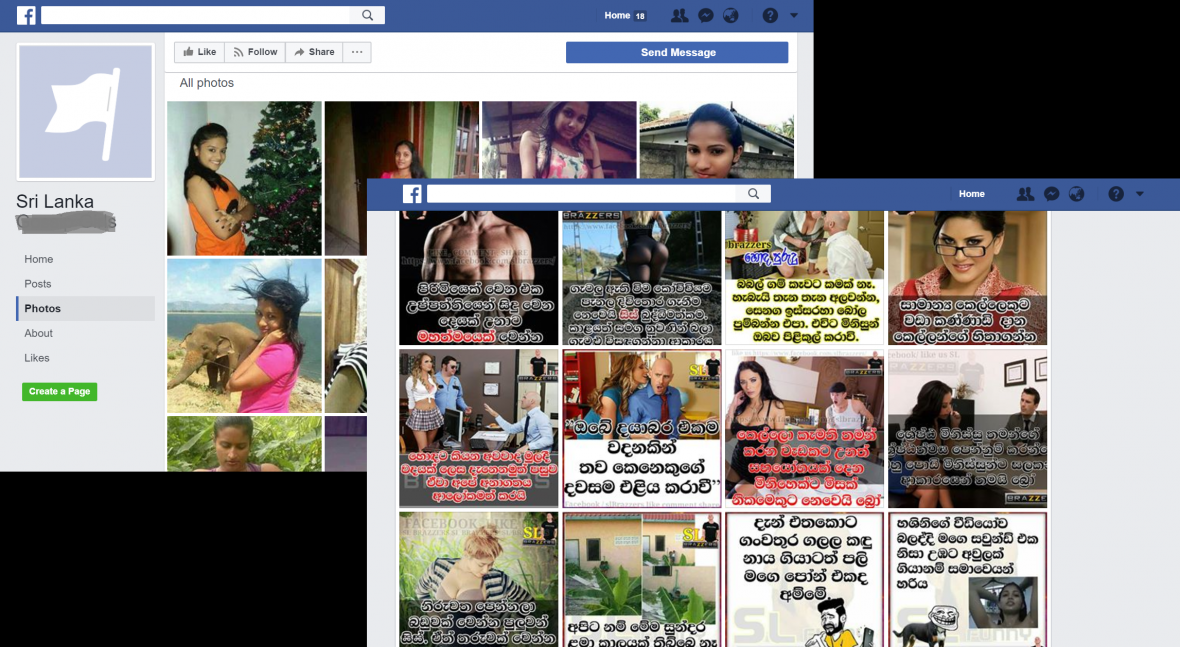
There are a number of Facebook pages and communities that steal content and post offensive messages.
It’s really quite easy to come under fire on Facebook. All you have to do is to say something controversial where enough people can see it, to come under attack. Sometimes all you have to be is a public figure to attract backlash. There’s something about a keyboard and a screen that makes people feel they have the right to say anything they want and there’s something about Google that makes armchair-experts even out of the most double-digit of IQs.
Harassment online can come in many forms. People can send you unsolicited messages. They can slander you in public posts, be abusive, and bully you.
They can steal pictures, steal your identity, and clone your account.
In general, things can get quite offensive on Facebook. There can be outright racism, hate speech, content advocating violence, pornography, revenge porn, and child pornography.
Facebook is just another part of the internet, so you are going to find a lot of crap on it, though it may not be as bad as the rest of the interwebs.
Combating Harassment
When it comes to bullying, Facebook has a pretty robust set of policies. They partner with a large number of organisations like Anti-Bullying Ambassadors, Childnet International, Save the Children, and UNICEF. This section of policy even has custom graphics and little animations (unlike all their other resource pages), so you know they are serious. There’s resources for teens, parents, and educators, as well as links to a number of organisations that parents can contact for assistance and advice. There are instructions on how to secure your account, unfriend those who bully you, and protecting your information.
According to their community standards, Facebook will remove content that purposefully targets individuals with the intention of degrading them. These include pages, images, photos or videos, the sharing of personal information with the intent to blackmail, and repeated unwanted friend requests or messages. In certain instances, Facebook will remove threats of physical harm if they identify them as serious. You also can’t promote crime on Facebook, so if you have a selfie with your home-grown, purely organic, marijuana plant, you might want to think twice (if you are even able to think twice after too much sampling of your own product).
If you do come across anything that shouldn’t be on social media, Facebook has plenty of procedures in place for reporting any sort of harassment or inappropriate content. This is almost all you can do really—report something that’s not right.
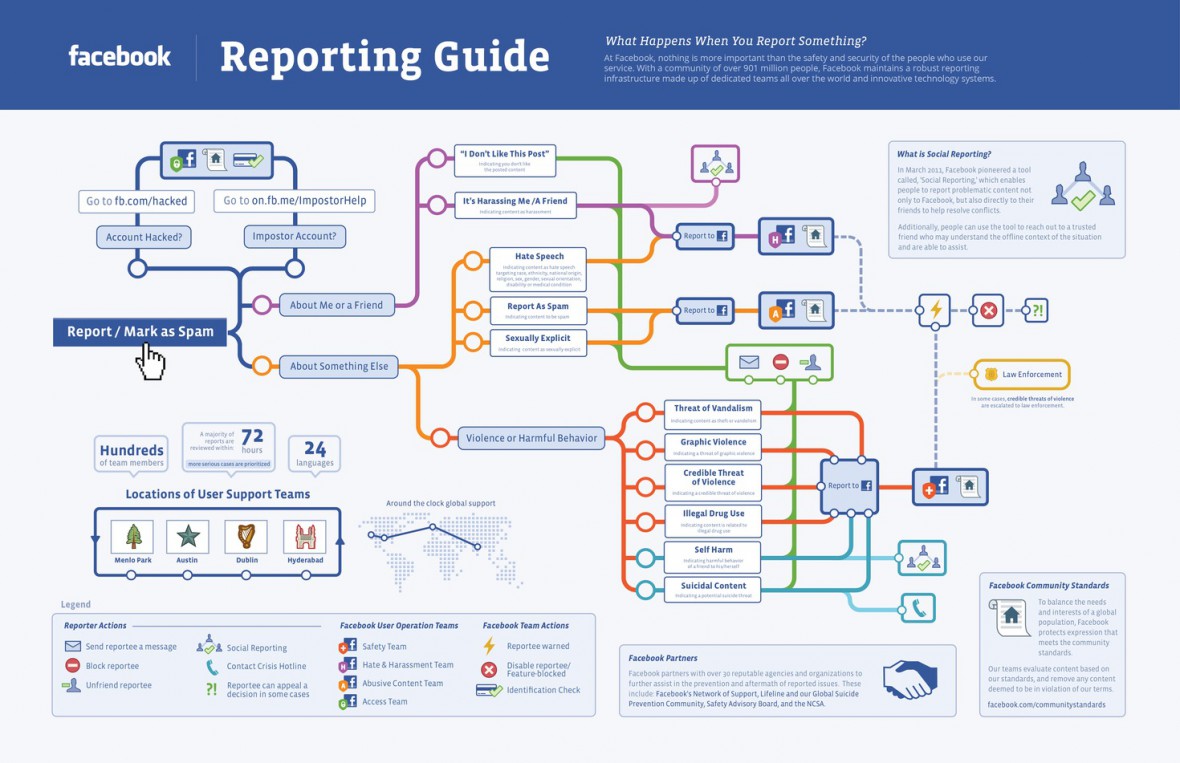
Facebook’s reporting guide from 2014. Image courtesy theconversation.com
Does It Make A Difference?
Anyone who’s reported anything from the Sri Lankan side of Facebook almost always feels like it’s a waste of time. There’s a pretty good reason behind this. With nearly 2 billion people signed on to the social network, the amount of content out there is tremendous. In contrast, Facebook has some 4,500 moderators, though they do plan to hire more. It is very difficult for the relatively small number of moderators to deal with the millions of reports coming in.
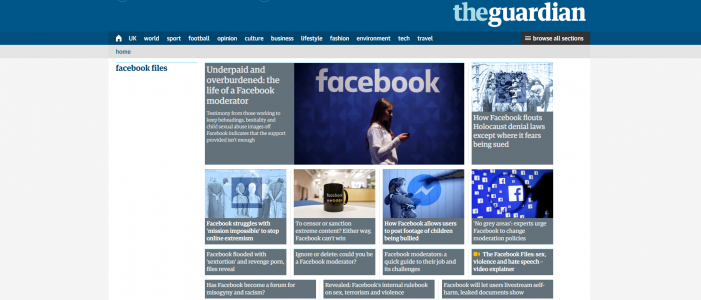
The Guardian got hold of internal Facebook manuals that indicate how they deal with offensive content.
The Guardian last month got hold of the documents used to train Facebook moderators and published a series of articles called the Facebook Files, that describes what happens behind the scenes when it comes to inappropriate content on Facebook. The articles are illuminating.
This January, moderators alerted senior managers to 51,300 potential cases of revenge pornography, and 2,450 cases of potential sextortion, leading to 14,130 accounts being disabled. That’s just the easy stuff. The life of a moderator is hard. Some of the content they come across is so disturbing that they have to seek counseling.
Facebook tries to maintain free speech on their platform, though where they draw the lines can be complicated. According to their manual, moderate amounts of sexuality are allowed. Violent speech and expressions of violence are also allowed as Facebook acknowledges that “people use violent language to express frustration online” and feel “safe to do so” on the site. Credible violence that calls for action, however, will be taken down.
So you can say “Let’s beat up fat kids” but you can’t say “Someone shoot Trump”. Facebook concedes that “not all disagreeable or disturbing content violates our community standards”.
So as angry as you may get, you can’t always get that BBS or other racist page taken down, because for one, the poor moderator has no idea what is being said in Sinhalese, and for another, free speech is allowed. Even if that speech is as slimy as a slug facial.
Facebook is pretty famous for allowing content denying the holocaust to remain up, unless they are forced to take it down. You can find their policy on it here, but be warned, there are disturbing images on the page.
So What Can You Do?
If you are being harassed online, and if the harassment is serious enough, you can escalate it to a senior official through reporting procedures. If it’s bordering on criminal, you can always contact local authorities. You can report these incidents to the police, or seek assistance from the NCPA or CERT.
Other than that, there’s not much you can do, except control things from your end. Know what information is public from your end, be careful how you share your content, and always check your privacy settings. Most importantly, pay attention to whom you add to your friend list, because it’s these people who have access to your content. Be generous with the unfriending and blocking when it comes to harassment, and don’t engage with people who are abusive.
When it comes to offensive content online, you’re going to have to suck it up. If it obviously goes against Facebook’s guidelines, you have a chance of taking it down. But otherwise, the best you could do is report it, and hide it from your timeline.
In the end, Facebook is still the internet, so you are going to find a lot of crap on it. You can’t clean it all up, but you can filter what crap you want to see (doge memes and the Kardashians) from what you don’t (Hitler and the other Kardashians).
Featured image courtesy Huffington Post


